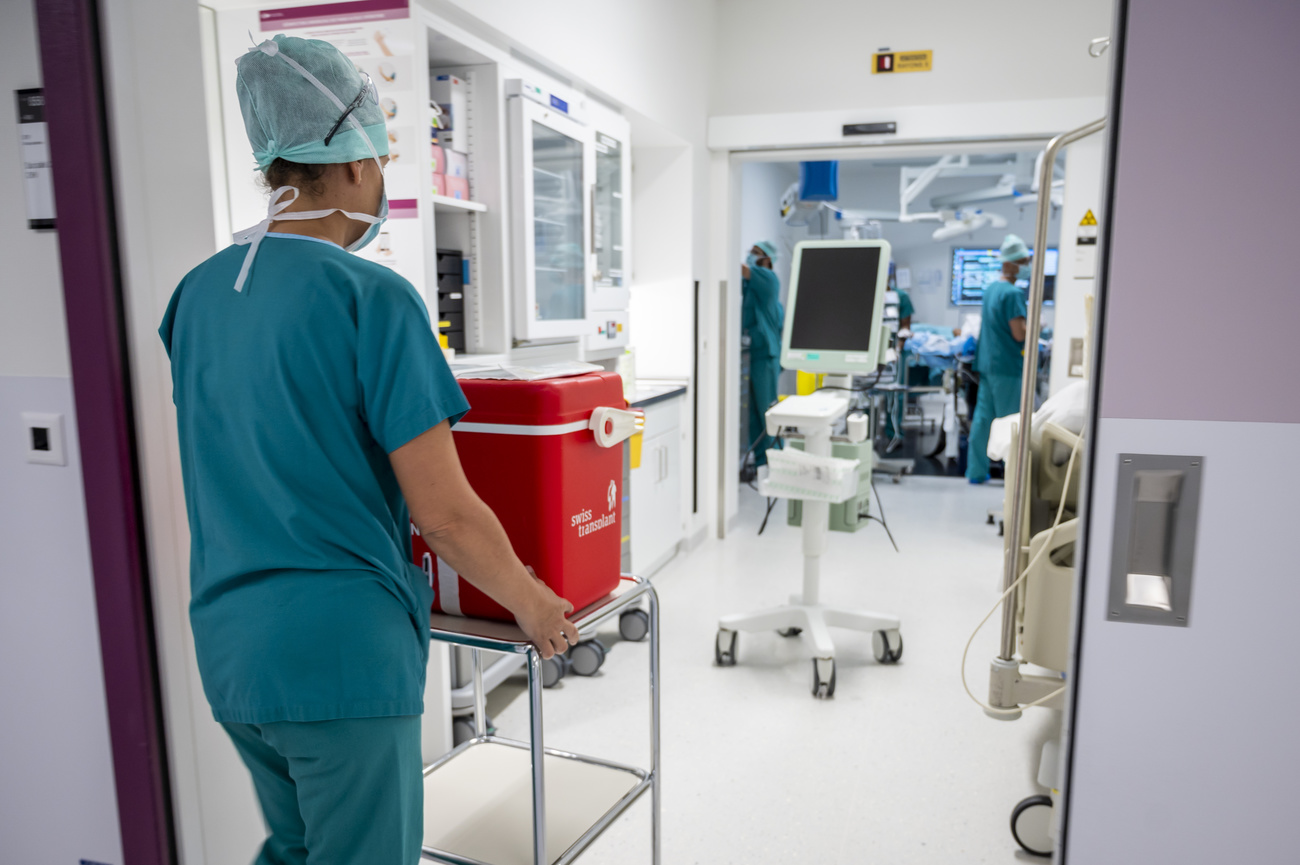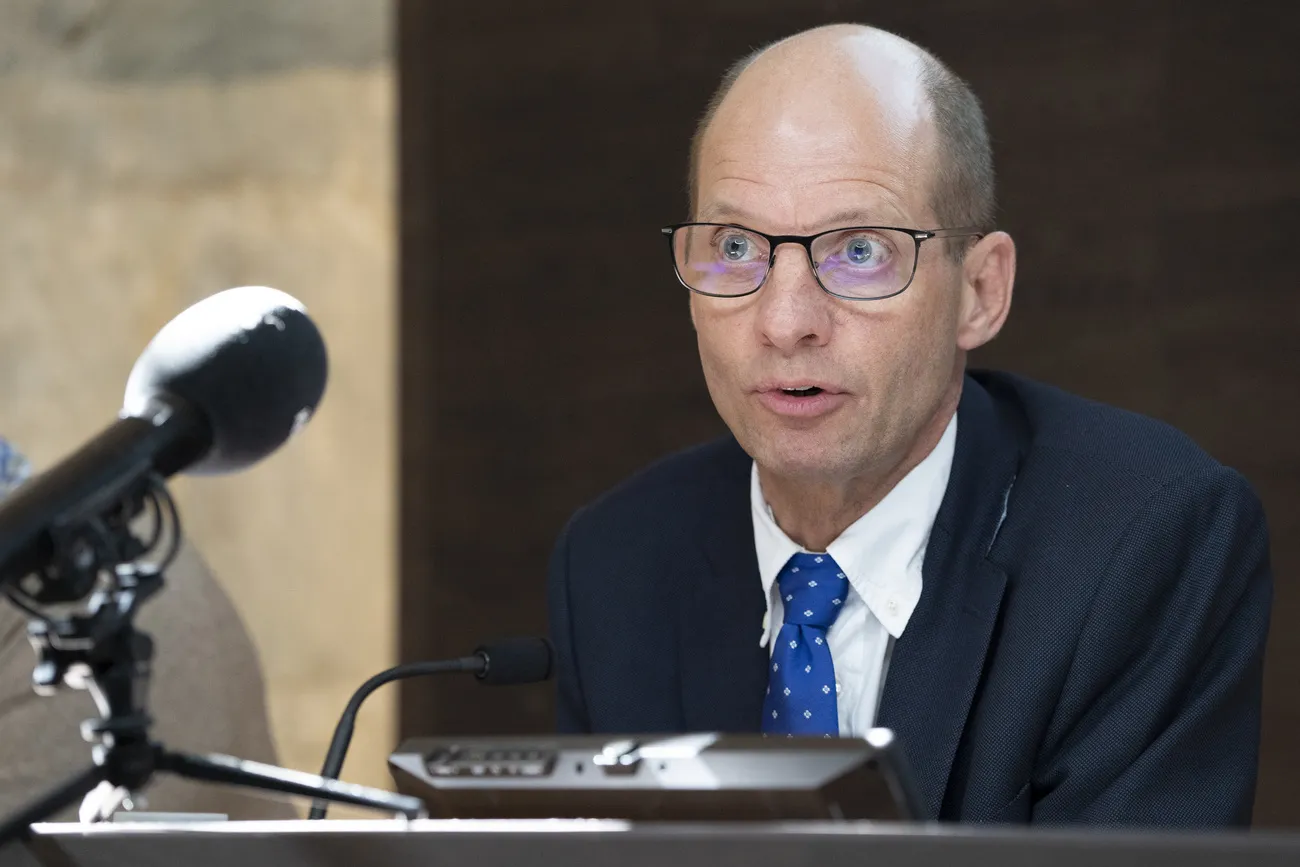Voters give consent to new ‘opt-out’ system of organ donation

A clear majority on Sunday backed the move from explicit to presumed consent, a shift that supporters say will boost organ donation rates and save lives.
Some 60.2% agreed to the revised law, a score that tallied almost exactly with opinion polls in recent weeks. Approval was overwhelming in the French-speaking south and west of the country. Four smaller German-speaking cantons voted against.
With the result, the current opt-in model of organ donation will be flipped: from now on, unless you actively opt out of donation during your lifetime, you will be presumed to have been in favour – although family members will still be consulted in cases of doubt.
The result is a “yes to life”, said Franz Immer, director of the Swisstransplant foundation, on Sunday. Immer said the change would boost the chances of the 1,400 people on organ waiting lists, and hopefully save lives; 72 people died while waiting for a transplant last year.
The outcome is also a victory for the government and a majority of parliament, which approved the amendment last year as an alternative to a further-reaching people’s initiative (see box), before opponents gathered signatures to force a referendum.
The revision to the transplantation law was an indirect counter-proposal by the government to a people’s initiativeExternal link calling for presumed consent to be written into the federal constitution. This initiative, which in 2019 handed in the 100,000 signatures needed to force a vote, did not include the obligation to consult family members. Now that the counter-proposal has been accepted, the initial people’s initiative has been dropped.
Throughout a rather muted campaign, the government pointed to other European countries where organ donation rates are higher, and which already have opt-out systems in place – although they admitted that studies have not found a direct causation effect.
At a press conference in Bern on Sunday, Interior Minister Alain Berset said the result “confirmed the positive attitude that [authorities] had always felt among the Swiss population when it comes to organ donation”.
However, Berset added that the changes marked “not a revolution, but an evolution” – family members will still be tightly associated with difficult decisions, he said. And if no family members are found, no organs will be taken.

More
Swiss voters say ‘yes’ to new organ donation model
Radical change
Opponents had argued that the change was fundamental, particularly in how it affects the relationship between state and citizen. People will now have to opt out in order to be guaranteed their constitutional right to physical integrity, they said.
“It’s disgraceful that in a state based on the rule law, you have to actively resist the fact that when you die, your organs can be extracted,” said on Sunday Verena Herzog of the right-wing People’s Party, the only major political group to oppose the law.
Herzog also that the campaign had been “too emotional”. This point was raised several times during the campaign by the referendum committee, who complained that the Yes side leaned too heavily on testimonies of transplant patients rather than objective facts about boosting donations.
More
Alex Frei, a retired doctor who headed the referendum committee, added on Sunday that people didn’t have enough information about the procedures of organ donation.
Frei claimed that people were not aware that donation is not about “cold bodies”, but rather brain-dead patients in intensive care who are supplied with oxygen until organs are removed. If everybody knew this, the result would have been different, he told the Keystone-SDA news agency.
However, the fact that large parts of the public have been talking about and debating the issue in recent weeks – because of the vote – was itself a “big success”, Frei said.

More
Organ donation consent: lifting the burden off those left behind
Next steps
The change in law will not come into force overnight. Not only must the government now inform all six million adult citizens in Switzerland of their new rights and obligations; they will also have to create a national register where people can opt out.
After a security slip earlier this year concerning the current donation register, operated by Swisstransplant, opponents have pledged to closely monitor how the authorities proceed.
On Sunday, Berset said the transition to the new law would be done “very carefully”, and that the priority will continue to be on securing the most important piece of information: the true will of the deceased person regarding their organ donation.
The Federal Office of Public Health (FOPH) says the new presumed consent model will come into force in 2024 at the earliest.
Vote results May 15, 2022
Organ donations – presumed consent: 60.2% Yes; 39.8% No
Funding for EU Frontex border agency: 71.5% Yes; 28.5% No
Reform Swiss film law (“Netflix law”): 58.4% Yes; 41.6% No
Turnout: 40.3%
About 5.5 million Swiss citizens, including registered expat Swiss were eligible to take part in the votes.

In compliance with the JTI standards
More: SWI swissinfo.ch certified by the Journalism Trust Initiative












You can find an overview of ongoing debates with our journalists here . Please join us!
If you want to start a conversation about a topic raised in this article or want to report factual errors, email us at english@swissinfo.ch.